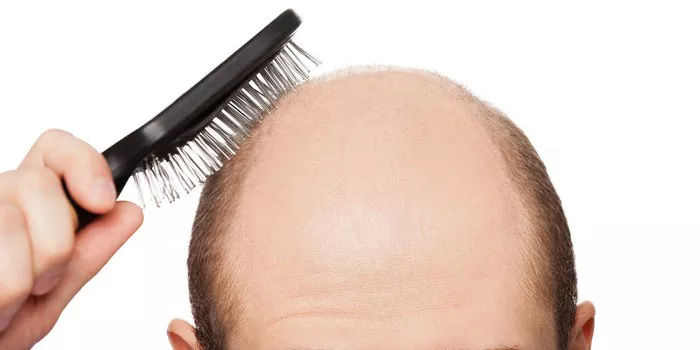For individuals exploring birth control options, the potential side effects are an essential consideration. While many women use contraceptives without any issues, some may notice changes in their hair health. This article aims to explore the relationship between certain types of birth control and hair loss, providing insights into the factors that contribute to this phenomenon.
Hormonal Contraceptives and Hair Health
Hormonal contraceptives, including birth control pills, patches, and hormonal intrauterine devices (IUDs), are widely used for their effectiveness in preventing pregnancy. These contraceptives contain synthetic hormones, typically estrogen and progestin, which mimic the natural hormones in a woman’s body. While these hormones regulate the menstrual cycle and prevent ovulation, they can also influence other bodily functions, including hair growth.
Androgenic Progestins: A Potential Culprit
Among the various synthetic progestins used in hormonal contraceptives, some are considered more androgenic, meaning they have properties similar to male hormones (androgens). Androgens play a role in regulating hair growth, and an imbalance or excess of these hormones can lead to hair loss. Therefore, contraceptives containing androgenic progestins may be associated with a higher risk of hair loss.
Identifying Contraceptives with Androgenic Progestins
Several studies have investigated the potential link between specific contraceptives and hair loss. Norgestrel and levonorgestrel, for example, are progestins found in some birth control pills and have been associated with a higher likelihood of hair thinning or loss. It’s important to note that individual responses to hormonal contraceptives can vary, and not every woman using these progestins will experience hair-related side effects.
Non-Hormonal Birth Control Options
For individuals concerned about the potential impact of hormonal contraceptives on hair health, non-hormonal birth control methods may be worth considering. Barrier methods, such as condoms or diaphragms, as well as copper IUDs, do not contain synthetic hormones and are less likely to affect hair growth. Consulting with a healthcare professional can help individuals explore suitable alternatives based on their preferences and health considerations.
Genetic Predisposition and Hormonal Sensitivity
While specific progestins may be linked to hair loss, an individual’s genetic predisposition and sensitivity to hormones also play a significant role. Women with a family history of androgenetic alopecia (pattern hair loss) may be more susceptible to hormonal changes affecting their hair. Additionally, women who are inherently sensitive to fluctuations in hormonal levels may experience changes in hair growth even with contraceptives containing lower androgenic progestins.
Addressing Hair Loss Concerns with Healthcare Professionals
If you suspect that your birth control is causing hair loss, it’s crucial to consult with a healthcare professional. They can evaluate your medical history, perform necessary tests, and help determine whether the contraceptive is contributing to the issue. If hair loss is identified as a side effect, your healthcare provider may recommend adjusting the type of contraceptive or exploring alternative birth control methods that are less likely to impact hair health.
Nutritional Support for Hair Health
Regardless of the birth control method chosen, supporting overall hair health through proper nutrition is essential. A well-balanced diet rich in vitamins and minerals, including biotin, vitamin D, and iron, can contribute to the strength and vitality of your hair. If you’re concerned about hair loss, consider discussing your diet with a healthcare professional to ensure you’re meeting your nutritional needs.
Exploring Hair-Friendly Contraceptives
For individuals who prioritize their hair health while using contraceptives, it’s worth exploring options with lower androgenic progestins. Desogestrel and gestodene are examples of progestins considered to have a lower androgenic effect and may be associated with a reduced risk of hair loss. However, individual responses vary, and consulting with a healthcare professional can help determine the most suitable contraceptive based on personal health factors.
See Also: [Reveal!] How Long Does Shock Loss Last After Hair Transplant?
Conclusion
While hormonal contraceptives are generally safe and effective, some individuals may experience changes in hair health as a side effect. Understanding the potential link between certain progestins and hair loss, considering genetic predispositions, and exploring alternative contraceptives can help individuals make informed choices that align with their health priorities. If you’re concerned about hair loss related to birth control, consulting with a healthcare professional is crucial for a personalized assessment and guidance on suitable options for contraception that align with your overall well-being. Remember, open communication with healthcare providers is key to finding a balance between reproductive health and maintaining the health and vitality of your hair.


